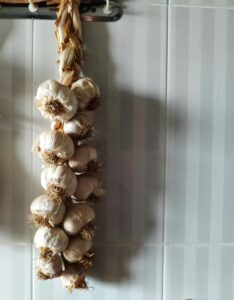Feeling frustrated with the endless cycle of antibiotics to treat SIBO? You’re not alone! Many people are seeking natural alternatives to manage their symptoms and improve their gut health. In this post, we’ll explore effective natural treatments that can help you combat SIBO without relying solely on antibiotics. Let’s dive in!
Why Choose Natural Alternatives for SIBO?
SIBO happens when there’s an overgrowth of bacteria in the small intestine. Usually, the go-to treatment for SIBO is antibiotics, which makes sense since we’re dealing with bacteria. But you might be wondering if there are other ways to tackle SIBO. Well, interestingly, some research suggests that natural remedies might work just as well as antibiotics. In one study, researchers used the SIBO breath test to measure gas levels in two groups of patients—one group took Rifaximin, an antibiotic, while the other tried a herbal supplement. Surprisingly, the group using the herbal supplement actually saw slightly better results than those on the antibiotic.
So why would you choose one or the other?
Choosing natural treatments for SIBO offers several benefits:
-
- Avoiding Antibiotic Resistance: Overuse of antibiotics can lead to resistant bacteria.
- Improving Overall Gut Health: Natural treatments can promote a healthier gut environment. Sometimes, instead of focussing on killing bad bacteria, it’s
Top Natural Alternatives for SIBO: Herbal Antimicrobials
If you’re worried that these antimicrobials will give you the same symptoms as their food counterparts, don’t be. Usually, these can be taken in pill form and they don’t containt FODMAPs. That means: allicin extract is only the active ingredient of garlic, not garlic itself.

Berberine-Containing Herbs
Berberine is a compound found in plants like goldenseal, barberry, and Oregon grape root. It has strong antimicrobial properties effective against a wide range of bacteria. (source). It is a golden yellow and bitter-tasting.
How Berberine Helps:
-
- Berberine has anti-inflammatory, antimicrobial, and antiviral effects (source).
- Reduces inflammation in the gut lining .
- Enhances the gut barrier function by preventing the location from the bacteria from the gut to the blood stream, a common issue in SIBO that can lead to systemic inflammation and further health complications.
- Berberine stimulates gut motility (the movement of food through the small intestine). This ensures food doesn’t stay in the small intestine, which can be one of the root causes of SIBO.
- It can also be used for other conditions, like diabetes (source), high levels of cholesterol or other fats in the blood, and high blood pressure.
Usage Tips:
-
- Common dose ranges from 500 mg to 1500 mg per day according to a meta-analysis of 14 studies (source).

Oregano Oil
Oregano oil is known for its strong antimicrobial and antifungal effects. It is a plan with green leaves and purple flowers, related to other herbs, including mint, thyme, marjoram, and basil.
Benefits:
-
- Effective against harmful bacteria without disrupting beneficial strains (source).
- Also, it contains compounds like carvacrol and thymol that are effective against bacterial growth.
- Oregano oil also has antifungal properties as well, which means that it is effective against yeast infections, caused by a fungus called candida.
Usage Tips:
-
- Use enteric-coated capsules to prevent stomach irritation.
- Secondly, it is powerful stuff, so it’s recommended to start with a low dose and gradually increase that if you tolerate it well.

Allicin (Garlic Extract)
Allicin is the active compound in garlic with antibacterial properties.
Benefits:
- Specifically targets SIBO-related bacteria (source).
- Additionally, it supports immune function.
- It also helps reduce high blood pressure (source).
Usage Tips:
- Firstly, it’s best to use stabilized allicin supplements rather than raw garlic. Since allicin is the active compound within garlic that provides these benefits, a specific supplement is more effective. Moreover, garlic is often not tolerated by people with SIBO or IBS because it contains a high amount of FODMAPs. Fortunately, allicin is usually well-tolerated, as it’s only the active ingredient without FODMAPs.
- For dosage, typical recommendations range from 450 mg to 900 mg per day.

Neem
Neem is used in traditional medicine for its antibacterial and anti-inflammatory properties.
Benefits:
-
- Helps reduce harmful bacteria in the gut.
- May improve digestive symptoms associated with SIBO.
Usage Tips:
-
- Available in capsules, tinctures, or teas.
- Consult a healthcare provider for appropriate dosing.
How to know which natural alternatives for SIBO to take?
It’s recommended to talk with a healthcare provider. Not only to understand so you can get tested and understand which type of SIBO you may have, but also to ensure you can get treatment options and natural alternatives that are fitting for your specific case of SIBO. SIBO often causes vitamin deficiencies and food intolerances that may need to be taken into account in your treatment plan.
Some are more commonly used for methane or hydrogen dominant SIBO:
- Allicin, oregano, and neem extract can help with Methane-dominant SIBO.
- Berberine, oregano, and neem extract may help to tackle Hydrogen-dominant SIBO.
Building up your gut health by adding probiotics and managing symptoms through specific diets can be a solid part of your treatment plan as well.
Conclusion
In conclusion, you don’t have to rely solely on antibiotics to manage SIBO. Natural alternatives like herbal antimicrobials, probiotics, and specific dietary changes offer effective ways to combat bacterial overgrowth and improve gut health. Most importantly, working with a healthcare professional ensures that your approach is safe and tailored to your needs. Ready to embrace a natural path to digestive wellness? Start your journey today!

